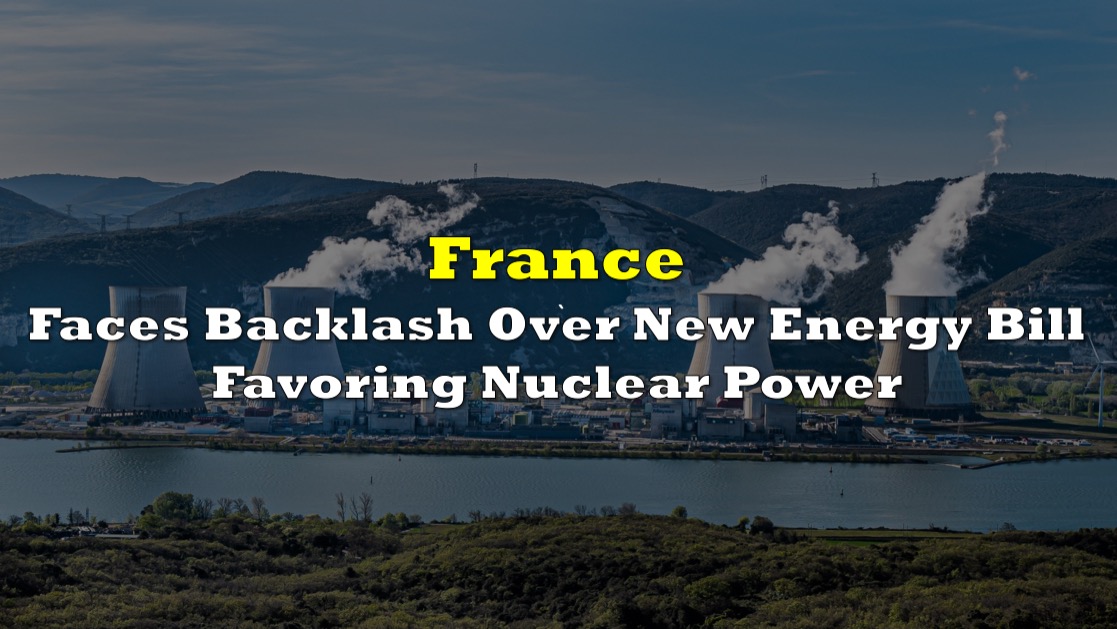In a move criticized as regressive, France is set to introduce a new energy bill that emphasizes the expansion of nuclear power while sidestepping specific targets for solar, wind, and other renewables. Critics argue that the proposed legislation, slated for cabinet review next month before submission to lawmakers, represents a departure from the nation’s push for a greener energy landscape.
France, along with other European Union members, is committed to achieving carbon neutrality by 2050. The proposed text underlines the country’s dedication to nuclear power for “energy sovereignty,” highlighting its historical role as a nuclear power generation leader since the 1973 oil crisis.
With over 50 aging nuclear power plants responsible for approximately two-thirds of the nation’s electricity, France faces the challenge of transitioning to a new generation of reactors. The draft legislation aims to construct at least six, and potentially up to 14, new reactors to facilitate the shift to clean energy and align with climate change goals.
However, the controversial bill refrains from setting specific targets for renewable capacity, particularly in wind and solar, a departure from previous energy laws. The Ministry of Energy Transition defends the decision, asserting that the government will establish renewable targets at a later date, dismissing claims of a lack of commitment to renewables.

Environmental activists and experts, however, remain unconvinced. Arnaud Gosse, a lawyer specializing in environmental law, criticizes the bill, stating, “It’s a terrible step back.” He argues that by quantifying only nuclear power, the legislation prioritizes it, leaving non-renewable energies subject to future decrees.
France’s ambition to achieve carbon neutrality by 2050 necessitates a substantial increase in renewable production, a fact emphasized by various studies. Despite passing bills in the previous year to expedite progress on both nuclear and renewables, the new draft law falls short of providing concrete targets for renewables.
Jules Nyssen, president of France’s Renewable Energies Union, expressed his astonishment at the absence of renewable targets in the draft, emphasizing the significance of the setback. Anne Bringault, energy transition manager of the Climate Action Network, deems it a “significant step backward” and inconsistent with European objectives.
The draft legislation also raises concerns by dropping targets for reducing energy consumption through building renovations. As the bill moves through the legislative process, stakeholders and activists will closely watch for amendments addressing the apparent imbalance in prioritizing nuclear power over renewables in France’s energy future.
Information for this story was found via the sources and companies mentioned. The author has no securities or affiliations related to the organizations discussed. Not a recommendation to buy or sell. Always do additional research and consult a professional before purchasing a security. The author holds no licenses.









